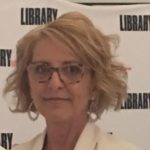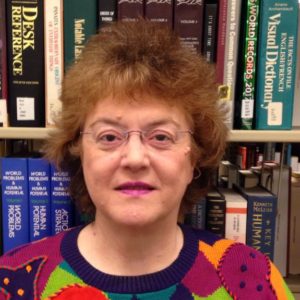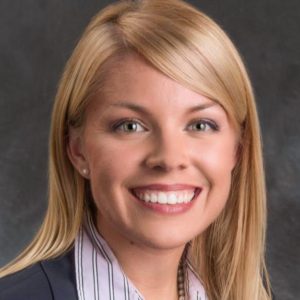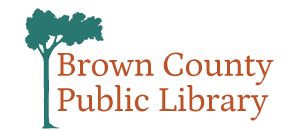Brown County Reads and the Suffrage Centennial
2020 marks the 100th anniversary of the passage of the 19th Amendment, guaranteeing and protecting women’s constitutional right to vote. In Indiana the 19th amendment was officially adopted as law in August 1920, and this year Brown County READS will celebrate this historic achievement August through November.Rather than one book, this year the Brown County Public Library will offer a variety of books on the topic of women’s suffrage for the county-wide read-along — non-fiction, fiction and even children’s books, as well four presentations by noted speakers. Make sure to check back for this year’s reading list and watch for the dates for the programs.

Brown County READS 2020 Program Calendar
Melissa Gentry | date to TBD
From Seneca Falls to Seymour and South Bend: Mapping Indiana’s Suffrage History
What can we learn by mapping Indiana’s women’s suffrage movement and its leaders?
On close inspection, story maps reveal that Indiana—and Hoosier suffragists in particular—were ideologically, economically, racially, and socially diverse. Melissa’s multimedia story maps depict some of the people and places connected to the history of women’s suffrage. Complete with ups, downs, sometimes dramatic and “less than ladylike” but always colorful individuals and events, her talk incorporates historic photographs, correspondence, diaries, club minutes, oral histories, movies, newspapers, music, and artwork from the collections of Ball State University. With these sources, she introduces national and Hoosier women suffragists like Ida Husted Harper, Madam CJ Walker, Sojourner Truth, Susan B. Anthony, and Lucretia Mott while highlighting Hoosier cities connected to the local and national suffrage movements.
 Melissa Gentry is the Map Collection Supervisor at the Ball State University Libraries’ GIS Research and Map Collection,where she provides instruction programs and curates special exhibits at Ball State University and the Muncie community. Since 2008, Melissa has been a featured instructor for the Cornerstone Center for the Arts, providing workshops/programs for Black, Women’s, and Native American History Months and other topics. Furthermore, she presented a women’s history session for the Hoosier Women at Work Conference in 2018, the Indiana Association of Historians in 2019, and the Midwestern History Conference in 2018. She is included in the Library of Congress Women’s Suffrage Centennial Commission database and credits her interest in women’s history to her grandmother, who worked for Indiana Senator Birch Bayh during his legislative battles for Title IX and the ERA.
Melissa Gentry is the Map Collection Supervisor at the Ball State University Libraries’ GIS Research and Map Collection,where she provides instruction programs and curates special exhibits at Ball State University and the Muncie community. Since 2008, Melissa has been a featured instructor for the Cornerstone Center for the Arts, providing workshops/programs for Black, Women’s, and Native American History Months and other topics. Furthermore, she presented a women’s history session for the Hoosier Women at Work Conference in 2018, the Indiana Association of Historians in 2019, and the Midwestern History Conference in 2018. She is included in the Library of Congress Women’s Suffrage Centennial Commission database and credits her interest in women’s history to her grandmother, who worked for Indiana Senator Birch Bayh during his legislative battles for Title IX and the ERA.
Marsha Miller | date to TBD
From Amanda to Zerelda: Hoosier Suffragists Who Raised A Ruckus
What did the women’s suffrage movement look like in Indiana and who were its pioneers?
Explore the chronological history of women’s suffrage in Indiana through historical costume and a suffragist song, or two! Marsha introduces Hoosier women who helped shape the movement, including Amanda Way, Grace Julian Clarke, Mary Garrett Hay, Helen Cougar, Zerelda Wallace and May Wright Sewall with a special focus on Ida Husted Harper and Eugene and Kate Debs. Her talk also explores coverage of the little known 1917 Maston-McKinley Partial Suffrage Act, the Legislative Council of Women and the words of Governor Goodrich upon signing ratification.
 Marsha Miller has taught more than 4,800 information literacy sessions at Indiana State University (1985-present) and coordinates library social media. Her degrees are from Central Michigan University (History) and the University of Michigan (Library Science). As a Research and Instruction Librarian her liaison areas include Multidisciplinary Studies (within that, Gender Studies), Social Work and Music, and she has the usual academic scholarship record. Since 2012, as a member of the League of Women Voters of Vigo County, she has served on the steering committee for the annual celebration of Women’s Equality Day. She has created biographical badges of suffragists and collected the songs that they sang when they gathered and marched. She currently serves as the Indiana president of the American Association of University Women (founded in 1881). She plays the clarinet and is known as the “Purple Librarian.”
Marsha Miller has taught more than 4,800 information literacy sessions at Indiana State University (1985-present) and coordinates library social media. Her degrees are from Central Michigan University (History) and the University of Michigan (Library Science). As a Research and Instruction Librarian her liaison areas include Multidisciplinary Studies (within that, Gender Studies), Social Work and Music, and she has the usual academic scholarship record. Since 2012, as a member of the League of Women Voters of Vigo County, she has served on the steering committee for the annual celebration of Women’s Equality Day. She has created biographical badges of suffragists and collected the songs that they sang when they gathered and marched. She currently serves as the Indiana president of the American Association of University Women (founded in 1881). She plays the clarinet and is known as the “Purple Librarian.”
Janine Giordano Drake | date to TBD
The Other Feminists: Socialists, Laborers and Anti-Lynching Activists
Why did working women strategically align themselves with suffrage organizations?
When some nationally-recognized suffragists like Susan B. Anthony and Elizabeth Cady Stanton were known to condescend poor and working-class women of color during the suffrage movement, Hoosier suffragists redirected the goals of the suffrage movement to support their concerns about labor, temperance, prostitution, and the rights of women to lead churches. Janine’s talk illuminates the resiliency of the suffrage movement and its tensions along the lines of class and race.Her stories illuminate working-class white women, immigrants and African American women who worked in different types of political organizations but also actively advocated for women’s suffrage as necessary for them to continue their work
 Janine Giordano Drake is Clinical Assistant Professor of History at Indiana University (Bloomington), where she specializes in United States social, labor and religious history. She is co-editor of The Pew and the Picket Line: Christianity and the American Working Class (Illinois Press, 2015) and has authored several other articles and book chapters on Social Christianity, the Left, and the Religious Left in the twentieth century. Her current book project explores the rivalry between the labor movement and the American churches for moral authority over the industrial working classes. At Indiana University, in addition to teaching and research, Janine serves as the liaison between the History department and the Advance College Project. In that capacity, she gets to travel around the state and support high school social studies teachers in teaching college-level history
Janine Giordano Drake is Clinical Assistant Professor of History at Indiana University (Bloomington), where she specializes in United States social, labor and religious history. She is co-editor of The Pew and the Picket Line: Christianity and the American Working Class (Illinois Press, 2015) and has authored several other articles and book chapters on Social Christianity, the Left, and the Religious Left in the twentieth century. Her current book project explores the rivalry between the labor movement and the American churches for moral authority over the industrial working classes. At Indiana University, in addition to teaching and research, Janine serves as the liaison between the History department and the Advance College Project. In that capacity, she gets to travel around the state and support high school social studies teachers in teaching college-level history
Laura Merrifield Wilson | date to TBD
Have We Come a Long Way, Baby?
How successful have women been in elected politics post-suffrage? What barriers remain?
Women comprise a majority of the population yet remain underrepresented within American government. In fact, Indiana trails most national numbers and remains one of 5 states in the country to never have elected a female governor or senator. One hundred years post-suffrage, this lack of representation presses the question of “why?” Laura’s talk addresses this question by bridging historical narratives with current statistics. By sharing her key research findings, exploring larger national trends and analyzing influential factors, Laura hopes that a better understanding of the past will enable us to work toward encouraging and electing more women in politics today.
 Laura Merrifield Wilson is an Assistant Professor of Political Science at the University of Indianapolis, where she specializes in gender politics, campaigns and elections, and state government. She earned her Bachelors in Theatre (2008) and Masters in Political Science (2010) from Ohio University and her Masters in Women’s Studies (2014), Masters in Public Administration (2012), and PhD in American Politics (2014) from the University of Alabama. Wilson is a regular panelist on CBS 4’s/Fox 59’s “IN Focus” on Sunday mornings and is the producer and host of WICR 88.7’s “Positively Politics” on Saturdays at 11:30 am.
Laura Merrifield Wilson is an Assistant Professor of Political Science at the University of Indianapolis, where she specializes in gender politics, campaigns and elections, and state government. She earned her Bachelors in Theatre (2008) and Masters in Political Science (2010) from Ohio University and her Masters in Women’s Studies (2014), Masters in Public Administration (2012), and PhD in American Politics (2014) from the University of Alabama. Wilson is a regular panelist on CBS 4’s/Fox 59’s “IN Focus” on Sunday mornings and is the producer and host of WICR 88.7’s “Positively Politics” on Saturdays at 11:30 am.
Additional Resources
- 2020centennial.org — Quizzes, book lists and timelines to test and increase your suffrage knowledge
- Indiana Women’s Suffrage Centennial – History, events and news about Indiana’s Suffrage Centennial celebrations and organizers
- Indiana Women’s Suffrage Centennial FAQ
